VOICE OF FLAME
‘Mitti ki Mehek, Kabaddi ki Lehak’: Understanding the Evolution and Commercialization of Kabaddi in North India | Discover India Program
18 Jun 2024 | Author: Tamanna Shroff |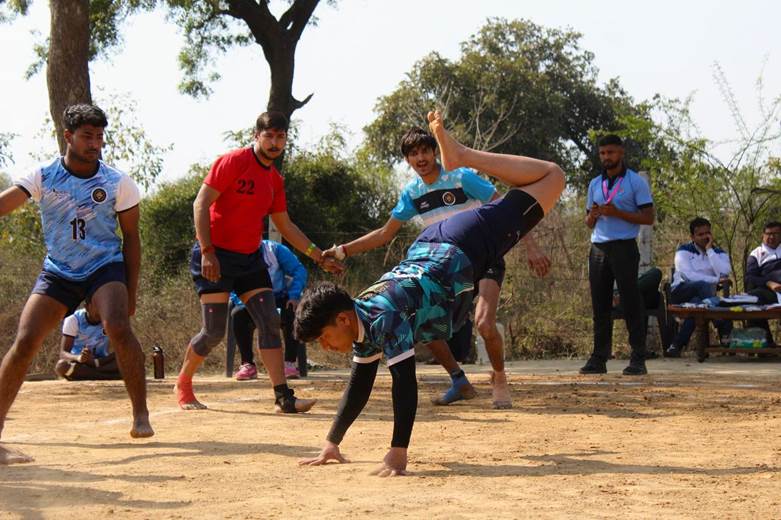
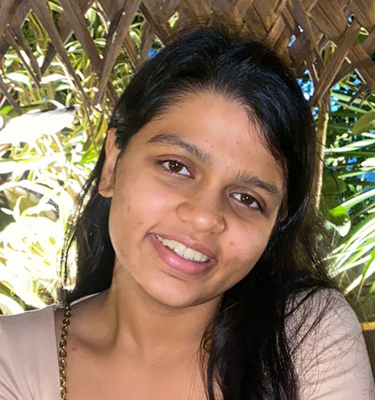
‘Mitti ki Mehek, Kabaddi ki Lehak’: Understanding the Evolution and Commercialization of Kabaddi in North India | Discover India Program
The Discover India Program offers us a remarkable chance to broaden our perspectives and embrace the diverse people, picturesque locations, and unforgettable experiences outside our campus. It allows us to break free from our usual learning routines and immerse ourselves in the lively culture that pulsates throughout our country.
Embarking on a Kabaddi Expedition in North India
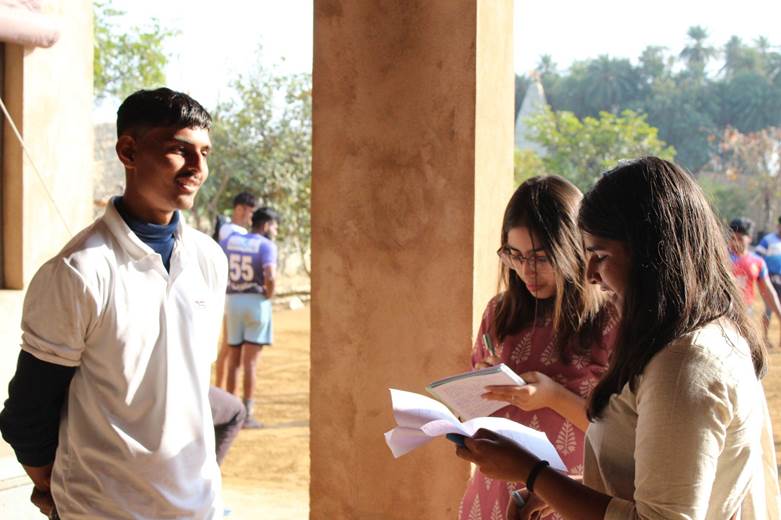
Our team embarked on a seven-day project, delving into the dedication and perseverance of athletes who have not only preserved an ancient game but have also propelled it to new heights.
Amidst a culture focused on cricket, we embarked on an expedition to explore Kabaddi, a sport indigenous to our homeland.
We were intrigued by the enthusiastic Kabaddi culture of North India and chose to center our research on that region. This decision led to our research title, "Mitti ki Mehek, Kabaddi ki Lehak: Understanding the evolution and commercialization of Kabaddi in North India.”
We aimed to unravel the limitations, struggles, motivations, and opportunities in Kabaddi through the very community that centers its life around this sport. We especially wanted to highlight the impact that recent commercialization like the Pro-Kabaddi League, had on a grassroots level.
Journey to Delhi: Planning, Traveling, and Arriving
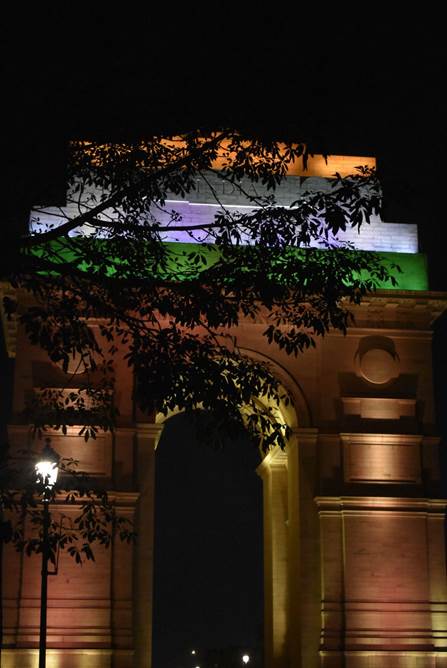
After months of planning, navigating locations using Google Maps, and scrolling through booking.com and IRTC, we began our 26-hour train journey. After consuming a few too many cups of tea, sandwiches, and playing card games, we finally arrived in the capital of India. It felt surreal that, after 5 months of extensive planning, we had finally made it here.
With no previous experience in field research, 12 second-year undergraduate students, with an itinerary, some equipment, and enthusiasm, were ready to tackle the next 5 days and the adventures that would come with them.
The craze for Kabaddi is rampant across the entire northern region of India, which, for us, meant a larger ground area to cover with a rapidly ticking clock. However, rather than a setback, our group used this as motivation to improve efficiency. We divided ourselves into smaller groups to capture the true essence of the sport across the borders of the NCR.
Field Research: Insights from Akhadas, Schools, and Government Offices
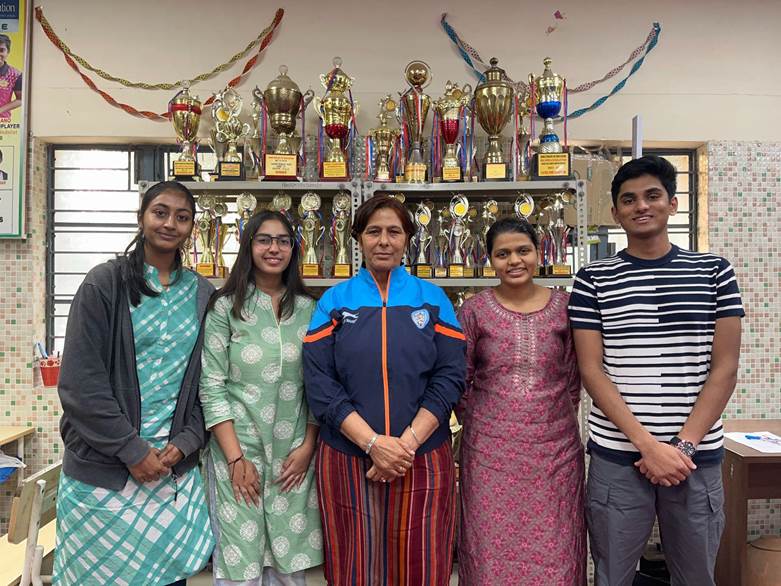
The research involved visiting Akhadas, schools, and government offices. We interacted with government officials, Kabaddi players, and coaches. One dominant aspect evident across the academies and the people was their genuine hospitality. The warmth they extended to strangers on their home turf touched our hearts and taught us the importance of culture. They truly showed us what it meant to be a part of a culture that values hospitality and guests. It taught us to extend kindness to every single being. At the end of the day, harmony is the core foundation of humanity. It is these lessons that make this project so wholesome and meaningful.
Their enthusiasm for sharing their journeys and personal stories with us gave us substantial data to study. Apart from that, it highlighted how each of them wanted their voices to be heard, their aspirations to reach the masses, and their longing for well-deserved recognition. In a country where cricket and other highly commercialized sports steal the limelight, Kabaddi, a mainly rural sport, has been put on the back burner for long enough.
Gender Perspectives in Kabaddi: Challenges and Triumphs
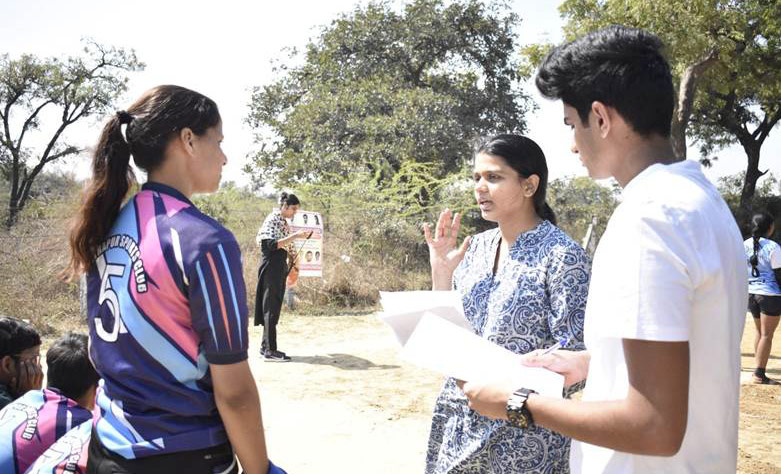
We interviewed women's coaches and players to bring a gender perspective to our topic and to understand the different challenges faced by both men and women in this sport. We found that women often deal with significant societal and family pressures on a daily basis. Some players also mentioned that the women's Kabaddi leagues do not receive as much recognition and support as the men's leagues. Many of the players, both male and female, particularly those from rural and lower socioeconomic backgrounds, face financial limitations. Although the specific challenges varied, we noticed that players of both genders encountered difficulties. These conversations showed us that the sports industry is not for the faint-hearted.
Despite the obstacles, the unhampered commitment to the game is driven by an undying passion for the sport and hopes of success. Hence, new initiatives like the pro-Kabaddi league are bringing about slow but long-deserved change in this field.
The Power of Persistence: Lessons Learned from Kabaddi Athletes
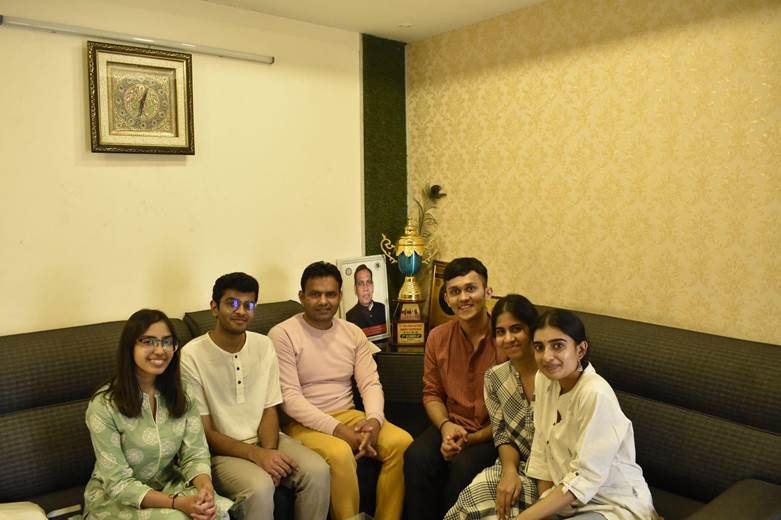
In addition to all the data we collected and the statistics we analyzed, the lessons we learned were about the power of persistence. We observed individuals who have experienced the lowest points in life yet chose to confront every challenge with determination. They also demonstrate the power of consistency. They stuck with something they loved, made it an essential part of their lives, and practiced it every day, even when it was not widely recognized. This kind of dedication is a skill that only a few can truly master. It's a skill that can lead to great success, and indeed, it has! Kabaddi is a growing sport and is expected to capture the attention of the entire nation very soon. Their dedication inspired us to keep going, reminding us that there is always a glimmer of hope, even in the darkest times.
Beyond Research: Cultural Immersion and Personal Growth
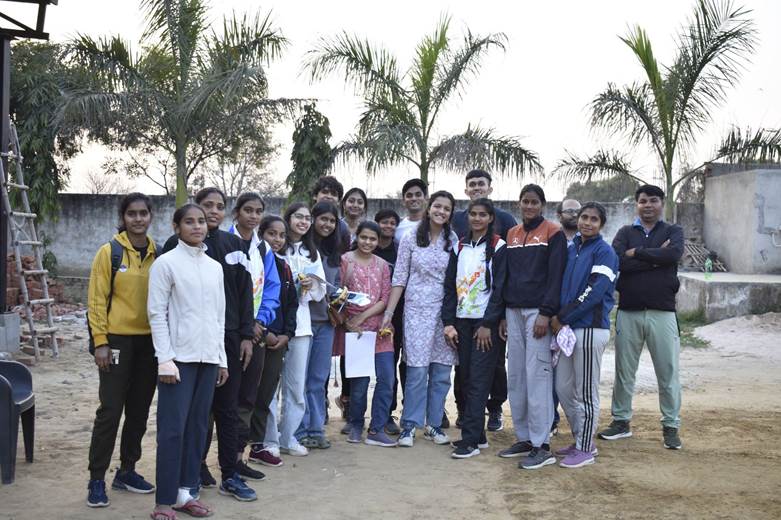
The DIP experience was a humbling reality check. In a world that often promotes excessive consumption and breeds a desire for the things we lack, this project taught us to appreciate and cherish what we already have. It encouraged us to be mindful of not taking advantage and to truly value the privileges we have been fortunate enough to receive.
One can write excellent reports from the comfort of one's desk. However, managing finances, interacting with people from different walks of life, respecting their stories, logistically planning an entire itinerary, and handling transportation and hotel bookings are important skills. These skills often take a back seat in traditional education, but this project brought them to the forefront. That is the beauty of DIP; it not only prepares you for research but also for life!
This trip isn't limited to education and academia. It allowed us to immerse ourselves in the rich culture of Delhi and the marvelous experiences it offers. We enjoyed evening strolls around India Gate and visiting important landmarks. The experience that stood out the most was savoring the city's delicious cuisines; from chole bhature to street food, our taste buds were truly blessed.
One soon realizes that DIP extends beyond the data and research. In fact, it is the moments in between the surveys and the interviews that make this trip a once-in-a-lifetime experience. It's about exploration, teamwork, the late-night conversations at the hotel, the countless jokes, and, of course, the people that make this entire trip worthwhile.
A note to our juniors:
In the upcoming years, you will have the chance to experience this yourself. Once you lose yourself in the hectic itinerary, the fieldwork, and the stress, remind yourself to cherish every minute of this trip. While you are writing about others' stories, don't forget that you are the sole author of your own story too. Make yours epic and unforgettable—one that will stay with you for years!
The Discover India project is a program that pushes students beyond the limiting boundaries of their comfort zone, imbues them with life skills beyond a PowerPoint presentation, and etches the most beautiful college memories in their hearts.
Picture credits: Samriddhi Oberoi and Rohan Lodhi
Team members: Tamanna Shroff, Rea Saxena, Rohan Lodhi, Aneesh Parnekar, Samarth Srimal, Akshat Sharma, Shreya Panchwagh, Lisa Deas, Samriddhi Oberoi, Anushka Ramesh, Anika Pandey, and Vanshika Sareen (undergraduate students at FLAME University)
(Author: Tamanna Shroff, Undergraduate Student)






